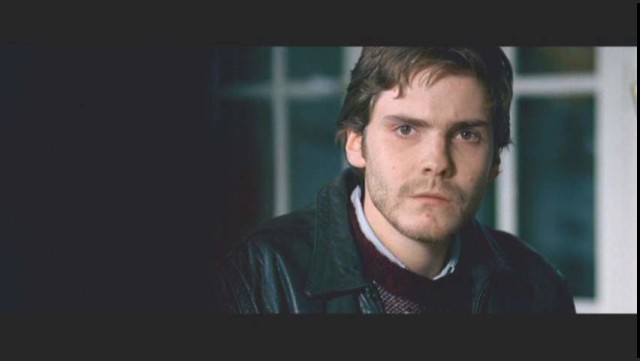
Just 26 days left. The contest is FREE. Winner gets their script optioned by Grey Matter. There’s no better contest deal on the planet! Submit now!
Again, Amateur Offerings is when YOU the Scriptshadow readers submit your own scripts in a Battle Royale format. The script that gets the most votes in the Comments section gets a Friday review, where, if the script is good, good things are known to happen. And it’s a special Amateur Offerings post since one of the scripts comes from an idea of mine! Shadows Below is based on an idea I threw out there in an earlier post. Gregory took that idea and he and his partner ran with it. I don’t want to weight script reads though. Try to read as many scripts as you can. Then vote for your favorite in the comments!
Title: Shadows Below
Genre: Action Thriller
Logline: After terrorists attack China on the 4th of July, a submarine commanded by the President’s Daughter and a team of Navy SEALs are all that stand between the US and Nuclear Armageddon.
Why you should read: Hidden around the world are submarines with only one mission: Nuclear Counter-strike in the event of war. Known as doomsday subs for their ability to destroy the world, redundancy protocols give their Captains absolute authority to launch ballistic missiles if communications with command ever stops. — SHADOWS BELOW is a modern day action / thriller that revolves around the President’s Daughter and the US submarine she comes to lead. After American terrorists nuke China’s Naval Command on the 4th of July, a Chinese doomsday sub Captained by a legendary Admiral goes rogue and has just under four hours to start a war by nuking Washington DC. — SHADOWS BELOW highlights every aspect of our Navy, from SEALs to Top Gun Pilots, submarines, and aircraft carriers, all engaging in a desperate battle just off the coast of DC to save America. — It is INDEPENDENCE DAY meets THE HUNT FOR RED OCTOBER with a female protagonist.
Title: Nerd Got Game
Genre: Teen Comedy
Logline: A high school science prodigy attends a State science convention where he meets a local girl who turns his world upside down.
Why you should read: Nerd Got Game has been through ten plus drafts, including a page one rewrite. The end result is a lean 90 page script that’s ready to go. I love the old John Hughes films from the 80’s and more recent teen comedy efforts like Sex Drive (2008), Easy A (2010) and The DUFF (2015). But teen comedies, like romantic comedies, seem to be a rare bird these days. Time for a comeback.
Title: Sessions of Lead Belly
Genre: Biopic
Logline: A Southern black folk singer walks the line between a violent criminal life and becoming a great American musician.
Why you should read: Inspired by the likes of “Raging Bull” and “Thirty Two Short Films About Glenn Gould”, “Sessions of Lead Belly” is stylistic bordering on surreal and strives for quality even at expense of authenticity. — The nonlinear structure throughout different periods in Lead Belly’s life of the early 1900’s is patterned to best draw interest and convey information, exploring who Lead Belly is and why, as well as the futility of triumph and meagerness of survival against all odds. — Every sequence is nearly standalone, playing out as ambitious mini-stories and innovative short films, each with a calculated build and unique style.
Title: The Feed (based on the novel “Feed” by MT Anderson)
Genre: Sci-fi
Logline: In the 22nd century, a complacent teenager’s life is thrown into disarray when a rebellious girl shows him that his Utopian world isn’t as perfect as it seems.
Why you should read: Yes, this is another teen dystopian sci-fi story. In 2100s America, our brains have been supplemented with “Feeds”. Feeds are amazing sources of information, communication and connectivity. Yet people are further apart than ever, unable to express anything but boredom and materialism. It’s a script full of big ideas like dependence on technology, corporate control, and big-brother paranoia. But more than any of those things, it’s about people. People who are still people, despite being profiled as consumers, targets, and cogs in the machine. — This is my first attempt at a feature-length script, something I finished working on last summer but was just inspired to submit (as I think adaptations are ineligible for SS250). I’ve written two shorts; one was made into a tiny indie and the other was the recipient of a large cash award within my university. The Feed is based on a novel I truly love, and I hope that the script shows that love for the core story and characters.
Title: LEGACY
Genre: Horror
Logline: A newlywed discovers her family has secretly been hunting down werewolves for centuries and must now choose between the life she has and continuing the family legacy.
Why you should read: This is a dark monster tale with some humorous character interactions to ease the ride. It is a telling of how secrets and betrayals can remold us while perpetuating the cycle of revenge no matter how desperately we fight against it. We are, after all, human. I am a nobody putting my spec out there hoping for an “Immaculate Reception” just to get it read. I have submitted this before to you, and you are probably sick of hearing from me however, I am persistent. Although I thought it was ready for contests, and I did send it to Scriptshadow 250, I highly doubt it will make the cut in any contest, because after I sent it, I found errors (I truly suck at proofing), but there may be other reasons it won’t make Carson’s list, or any list this year. However, since that time, it has gone through some revisions that I believe have removed these reasons, while painfully proofing it, and:
— In June 2015: LEGACY was requested by 2 production firms to read.
— Has nabbed a Wildsound contest WIN for a screenplay read, and is scheduled for August 2015.
— Made the semi-finals for 1/2015 “Table Read My Screenplay” Park City, Utah contest.
So, that’s progress, which I would like to continue by having it reviewed here by the SS community, so I have to ask, Carson, are you my ‘Franco Harris?”

Just 29 days left. Free contest. Winner gets their script optioned by Grey Matter. There’s no better contest deal on the planet! Submit now!
So a few weeks ago I was watching a short film (actually, it was the one I linked to in my newsletter) and I marveled at how easy it is to stand out in that medium. You have so many tools available to you. You can do something funky with the color grading (the green tint used in The Matrix). You can add a weird soundtrack (Gregory Go Boom). You can play with the camera angles, add creative camera movement, dress the set in a weird way (a la Wes anderson). The opportunities are endless.
Then you slide over to the screenplay side and… all of that is gone. You’re working with black and white. Not even images. Just words. There’s no musical cue to set the tone or sound effect to heighten the atmosphere. And that got me thinking. What can writers do to make their scripts stand out? I started thinking back to all the scripts I’ve read and specifically to the ones that left an impression. Was it only about the story? Or were there specific areas where you could make an impression? That’s the question I want to answer today. Here are six things you can do to make your script stand out from the pack.
Take pride in your presentation – Scripts riddled with weird presentation issues leave a bad taste in my mouth. Like the other day I was reading a script where a character name was at the bottom of the page, and the dialogue for that character was at the top of the next page. How am I supposed to see you as a professional after that? So start using professional screenwriting software, whether it be Final Draft, Fade In, even Celtx. This takes care of 90% of your presentation issues. From there, aim for a zero-mistake policy with your grammar and spelling. And avoid manic writing styles (lots of capitalization, underlining, italicizing). You may think you NEED TO WRITE WITH A BUNCH OF CAPITAL LETTERS AND BOLD AND ITALICS TO STAND OUT but all this does is make you look unsure of yourself – like you don’t think your story is good enough to be told without screaming. Whether I like a script or not, I always respect the writer who takes pride in their work. Those scripts always stand out to me.
Voice – Identifying something you want to write about is only half the battle. The other half is identifying how you’re going to present it – how your specific presentation is going to make it unique. This is the most effective way of standing out in screenwriting – writing in a unique voice. Take note, however, that “voice” has a volume dial. You can turn your voice up to “10” (tell your time travel story through the subconscious of a rabbit with Tourette’s Syndrome) but that might be too weird. On the flip side, if you don’t turn the “voice volume” up at all, nobody’s going to hear you. Take Tuesday’s two Narcos pilots. The first draft was slow, droll, painfully linear, and something we’ve seen a million times before. It lacked a single unique trait. The second draft shifted the perspective to a disembodied voice over and focused on a whirlwind retelling of Columbia’s exciting drug trade history. The exact same subject matter went from being boring to being fun – and it was all due to the voice it was told in – one that was more energetic and that changed up the perspectives of the main characters. So think hard about how you’re going to present your material. It has a huge impact on the read.
Start telling a story and never stop – Too many writers start their scripts in “set up” mode. They’re focused on setting up characters, relationships, backstory, jobs, plot exposition. As a result, we feel like we’re back in 6th grade reading comprehension class. Like, “Oh man, I better write down that John here lost his brother when he was 10 or I’m going to get an F.” Scripts should never feel like work, especially spec scripts. To that end, start telling a story from the very first line of your script and don’t stop until you type “The End.” The other day I rented this amazing foreign film called “Wild Tales.” It starts out on a plane, and an older man begins hitting on the woman next to him. Within 90 seconds, the two realize that they have a mutual friend. As they begin talking about this friend, someone in a nearby row pops up and says, “I’m sorry. I couldn’t help but overhear your conversation. I know that man as well.” And then another person pops up, and then another. We begin to realize that everyone on this plane knows this man. I’m not going to tell you what happens next to drive my point home. You’re already hooked. You want to know how all these people know the same person and you want to know what happens next. That’s what telling a story is about – it’s about hooking the reader immediately and not letting them go. Too many writers believe in some unwritten rule that it’s okay to bore the reader for awhile as long as you entertain them later. I’m sorry but it doesn’t work like that.
Thoughtful character introductions – It always leaves an impression on me when a writer writes thoughtful descriptive character introductions. Characters are really important. They’re the lifeblood of your story. And when you watch a movie, you get a sense of the character right away just by the way they look. Think about any of the characters in The Big Lebowski (or any Coen Brothers film for that matter). They really make an impression when they arrive onscreen, right? Well, you should try to replicate that on the page. And the only way you’re going to do that is with a thoughtful description that captures the character’s essence. To achieve this, identify a character’s defining characteristic and make that the focal point of their description. Here’s how The Dude is introduced in The Big Lebowski: “We are tracking in on a fortyish man in Bermuda shorts and sunglasses at the dairy case. He is the Dude. His rumpled look and relaxed manner suggest a man in whom casualness runs deep.” Isn’t that so much better than, “This is the Dude, a bored-looking man who walks through the supermarket isle?”
Paint a picture when you write – Lots of writers use the Dragnet approach to screenwriting (“Just the facts ma’am.”). So they’ll describe a bedroom this way: “The room is messy and has a single bed in the corner.” There’s nothing wrong with this. But come on. You’re a writer! Be creative. Paint us a picture. Maybe, “The room is populated with endless stacks of old Popular Science magazines. The bed in the corner is buried in various fast food bags.” You see how much more information the second description gives us? How much more you know about the person living in that room? And I know what you’re thinking: “But you tell us to keep our writing sparse, Carson.” That’s true. If a room isn’t relevant to the story, a quick and dirty description is fine. But if a location is relevant to the story or your characters, take a little extra time and paint a picture for us. Just do it in as few words but do it. If your entire script is told in a “just the facts ma’am” manner, it’ll register in the reader’s head as a big ball of genericness.
At least one larger-than-life character – When I read a script, I need at least one character who pops off the page. It doesn’t have to be the main character. But it’s gotta be someone. That way, I’m always looking forward to that character coming back (and that keeps me reading your script!). The most obvious example of this is Hannibal from Silence of the Lambs. Just a larger than life character who’s constantly surprising us. But your memorable character can be someone who’s crazy (The Joker), funny (George Clooney’s character in Gravity), a little bit dangerous (Quint from Jaws). If every character in your story is stuck firmly on the ground, you’ve probably got a pretty boring screenplay. You need that one character who’s at least 500 feet above sea level.
To sum up, I think the biggest way to stand out as a screenwriter is to be creative where others settle for being ordinary. Are you the writer who’s going to mail in one more generic car chase? Or are you going to put your character in a stationary bullet-proof super car with 20 cops firing AK-47s at it from less than 10 feet away and your hero has nowhere to go (Captain America 2). Are you going to give us one more generic boy-meets-girl rom-com? Or are you going to put that relationship in a blender like 500 Days of Summer? Are you going to demonstrate your main character’s detachment from life by making him yet another drunk? Or are you going to pull a Collateral Beauty and have him mindlessly building domino sculptures all day? Remember guys, it’s easy for readers to measure effort. We know when you’ve really put a lot into a scene and when you’ve mailed it in. You can never trick the reader. So put every ounce of your soul into every ounce of your screenplay and I promise you, you’ll stand out.
Genre: Sci-fi/Thriller
Premise: In the future, crime-fighting has been taken to the next level with “Vision,” a government project that allows specially trained agents to watch everything we do – and it’s all totally legal.
About: “Vision” went out a month ago and while it hasn’t sold yet, it probably will. Writer-director brothers Alex and David Pastor already have a big writing project coming out, Self/Less, which stars Ryan Reynolds as a body-hopper. I think with Vision they plan to direct it as well, which should push it through the system a lot faster (a naked spec takes forever to move through development – if you have directors attached, that eliminates half the battle). The Pastors first broke on the scene with their 2009 horror film, Carriers, which starred Chris Pine and followed four friends fleeing a viral pandemic.
Writers: Alex & David Pastor
Details: 108 pages (revised draft – 4/29/15)
So the other day I wrote an article about “spec-friendly” screenplays, the type of screenplays that do well on the spec market. These scripts are fast, fun, and easy to grasp.
Which stands in stark contrast to scripts built off of book adaptations, or assignments that come through the studio and prodco systems. In those environments, you’re working with people who are guiding you. They are therefore more patient and open to complicated story developments (and actually might encourage them).
Vision plays in the Sci-fi and Thriller genres (two genres that sell a lot of scripts), it’s really fast (you’ll struggle to find any paragraph over 3 lines), the script is built on a clear strong goal, it’s got loads of urgency, it doesn’t require a ton of concentration to keep up with – in that sense it’s about as “spec-friendly” as a script can get.
So then why didn’t it work for me? Well, it turns out that all spec-friendly screenplays have one giant weakness – a pitfall that’s easier to fall into than a never-used gym membership. What is that pitfall? Let’s discuss Vision’s plot first and then we’ll work on saving you from imaginary workouts.
The year is 2034 and the Snowden sub-culture that scared the bejeezus out of the average American in 2015 has morphed into something far freakier. Back in 2024, there was a nuclear attack on Chicago that killed a million people. After that, people were willing to give up a little freedom if it meant plutonium-free trips to the park.
And hence the Vision Project was born. Vision allows specially trained agents to watch over every single camera in the city to identify crimes before, during, or right after they happen – allowing cops to catch criminals instantaneously.
Our Vision controller protagonist is Leo Kruczynzki, a 35 year old guy who believes in the cause. And he’s good at what he does. The opening sequence shows Leo tracking down a murderer using a number of visual and aural monitors throughout the city (he locates a gun shot by triangulating the sound through three separate pedestrian recordings). In conjunction with his ground agents (every Vision Jockey needs’em), Leo’s pretty much unstoppable.
But everything changes when Leo spots Amanda, his former wife who disappeared on him one day. The red-headed Amanda has just been involved in a cop shooting. She makes a run for it and Leo must decide whether to use his fancy-schmancy Vision tools to capture or aid her.
Using some Vision magic, he gets Amanda on the phone, where he learns she’s part of a resistance and she’s found evidence of some major government plan – evidence the government will do anything to destroy.
So Leo has to make a choice – ditch his superiors and join the resistance – or do what’s “right” and protect the American people.
So what’s that big danger when writing a “spec-friendly” script? Simple.
GPS (GENERIC PLOT SYNDROME)
When your story moves spec-quickly, when your description is limited, when you’re playing to the impatient crowd, there’s not a lot of room for character exploration. Character development is mostly relegated to character choice, character action, and character reaction. And while you can still do a lot of cool stuff with those options, you’ll never have that scene in American Beauty where a character breaks down while watching a video of a bag flying in place.
And “Vision” falls victim to that in a big way. My biggest fear when opening this was that it was going to be Eagle Eye 2. And while we’re approaching those themes from a slightly different angle, that’s basically what it is. A lot of running around with very little plot and almost no ingenuity.
When you’re writing that spec thriller, I think the one area where you can stand out is in your plot choices – in the ways you twist and turn and evolve your plot. Because, as we’ve established, it’s hard to do much of anything anywhere else. So I was hoping for more exciting twists and turns here, plot developments I hadn’t seen before. Instead I got the standard:
1) Someone knows a secret about the government.
2) There’s a flash drive that contains this information.
3) They have to find the flash drive.
4) The flash drive says the government is going to attack the people.
5) Our protagonist has to prevent the attack.
The story beats here were just too “Screenplay 101 3-Act Thriller.”
I know some people didn’t like the Source Code film, but Source Code the spec was one of the best specs ever written. And a big reason for that was that they played with the plot more. They developed rules (the mission resets every 8 minutes – our main character stuck in a mystery bay) you weren’t used to, which allowed them to go places that kept surprising you.
Vision was the opposite. It was set up as a standard thriller from the get-go and it never tried to be anything more than that. Which was frustrating. I think one of your duties as a writer is to anticipate what the reader/viewer is expecting and then GIVE THEM SOMETHING ELSE. I’ve seen Tarantino mention this approach in a number of his interviews. I just wish more writers would challenge themselves to do the same.
With that said, this script is still a better read than your average amateur thriller. We may know what’s going to happen, but the writing is slick. The beats come at you when they’re supposed to. There’s an urgency here (the entire thing is basically happening in real time) that makes the story move. It feels like a screenplay, and more importantly, a movie. So there is something to learn as a writer.
But it’s one thing to write a screenplay that looks and feels like a professional screenplay. It’s quite another to write a screenplay that surprises, moves, and wows people. I wish the Pastor brothers took a bit more time and tried to make this the latter.
[ ] what the hell did I just read?
[x] wasn’t for me
[ ] worth the read
[ ] impressive
[ ] genius
What I learned: Every thriller needs that “there’s no going back moment.” You need to add that scene where your protagonist does something where going back to his normal life is now impossible. That way, we know he’s fucked and that he has to commit to the cause. This raises the stakes considerably. Here in Vision, one of Leo’s co-workers walks in and sees that he’s working against the company. Leo makes a quick decision to kill his co-worker. There’s definitely no turning back after that.





